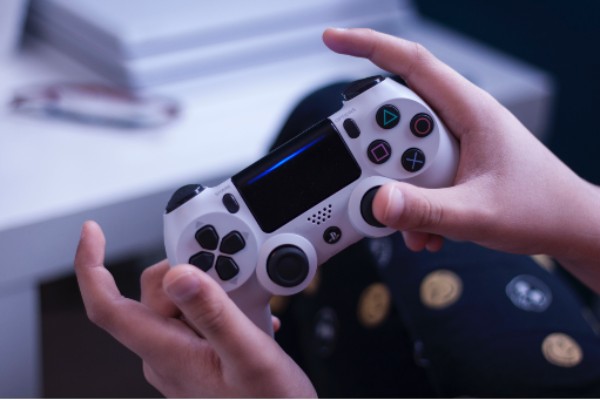Ever since gaming started becoming popular, we would constantly hear, “Video games will ruin your brain,” or “Video games are the main cause of violence.” But there has been proof of video games helping people instead of hurting them.
People are still debating whether gaming is hurting people, helping people, or not doing anything in particular. In 2016, writer Anastasia Wythe, a gamer with social anxiety disorder, gave her thoughts on video games. “The games themselves can also help foster a shared social experience and create a sense of belonging for such individuals. Connecting and socializing with other gamers online, even a little bit, can help people with anxiety overcome some of the issues they struggle with every day.” I used to be socially awkward around people, but the first time I played Minecraft on an online server, it really helped me become the talkative person I am today.
In games like Halo and Call of Duty, you’re always moving around and getting to know and use your surroundings. In 2014, author Lisa Bowen wrote in an article published on the American Psychological Association website, “While one widely held view maintains that playing video games is intellectually lazy, such play actually may strengthen a range of cognitive skills such as spatial navigation, reasoning, memory, and perception, according to several studies.”
Even though there are plenty of benefits, gaming still has its flaws. There have been many reports of video game-related injuries that have happened to people. In 2020, Harvard Contributor Peter Grinspoon blogged, “Repetitive stress injuries, or overuse injuries, are injuries that come from activities that involve repeated use of muscles and tendons to the point that pain and inflammation develop. If these injuries are allowed to progress, numbness and weakness can develop, and permanent injury can result.” I have plenty of friends and family who sometimes will play video games for multiple hours straight. I will do that myself on occasion, but I never experienced this in all my years of gaming, and I don’t think that it’s happened to anyone I’m close to. I’m not saying that Grinspoon is wrong, but I believe this occurs in people who play 4+ hours every day nonstop. What people can do to prevent these injuries is trying to cut back on how much they play by going outside, getting exercise, reading, playing board/card games with friends and family, etc.
Gaming can also help people with problem-solving. Bowen also added, “Playing video games may also help children develop problem-solving skills, the authors said. The more adolescents reported playing strategic video games, such as role-playing games, the more they improved in problem-solving and school grades the following year, according to a long-term study published in 2013.” Games like Angry Birds require some strategy when you’re trying to beat a level, so this could help with real-life situations.
So, in conclusion, gaming can be good for improving problem-solving, cognitive skills, and finding like-minded friends as long as you play responsibly. Remember, when you’re gaming, you’re not just having fun, but you’re sharpening your life skills in the process.
![]()
